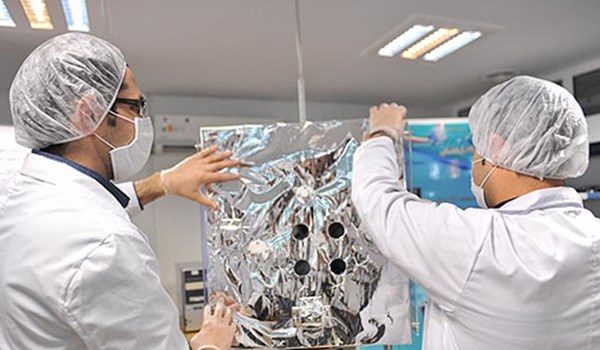
Breaking News
 Wash Post Editorial Board Turns Against Climate Agenda?!
Wash Post Editorial Board Turns Against Climate Agenda?!
 One Year Ago I Predicted and Described in Detail Huge Mars AI Plans that Elon Musk Confirmed...
One Year Ago I Predicted and Described in Detail Huge Mars AI Plans that Elon Musk Confirmed...
 British Teachers To "Spot Misogyny" In Boys And Target Them For Reeducation
British Teachers To "Spot Misogyny" In Boys And Target Them For Reeducation
 Democrats Refuse To Release Post-Mortem Of 2024 Election Loss, DNC Chair Says
Democrats Refuse To Release Post-Mortem Of 2024 Election Loss, DNC Chair Says
Top Tech News
 This tiny dev board is packed with features for ambitious makers
This tiny dev board is packed with features for ambitious makers
 Scientists Discover Gel to Regrow Tooth Enamel
Scientists Discover Gel to Regrow Tooth Enamel
 Vitamin C and Dandelion Root Killing Cancer Cells -- as Former CDC Director Calls for COVID-19...
Vitamin C and Dandelion Root Killing Cancer Cells -- as Former CDC Director Calls for COVID-19...
 Galactic Brain: US firm plans space-based data centers, power grid to challenge China
Galactic Brain: US firm plans space-based data centers, power grid to challenge China
 A microbial cleanup for glyphosate just earned a patent. Here's why that matters
A microbial cleanup for glyphosate just earned a patent. Here's why that matters
 Japan Breaks Internet Speed Record with 5 Million Times Faster Data Transfer
Japan Breaks Internet Speed Record with 5 Million Times Faster Data Transfer
 Advanced Propulsion Resources Part 1 of 2
Advanced Propulsion Resources Part 1 of 2
 PulsarFusion a forward-thinking UK aerospace company, is pushing the boundaries of space travel...
PulsarFusion a forward-thinking UK aerospace company, is pushing the boundaries of space travel...
 Dinky little laser box throws big-screen entertainment from inches away
Dinky little laser box throws big-screen entertainment from inches away
 'World's first' sodium-ion flashlight shines bright even at -40 ºF
'World's first' sodium-ion flashlight shines bright even at -40 ºF
Official: Iran Boasting Technologic Advancements in Satellite Making

"Iran has achieved the knowledge of building space engines; such engines were formerly built only by the US," Samimi said today.
He said the new achievement includes the design and development of various versions of "Arash space engine" the first sample of which was tested successfully late 2019.
Referring to the rapid developments of the country's space sector, Samimi noted that "space engines were not needed before because the Iranian satellites were put into the low orbit in the past; however, now that we are seeking to send satellites into the high orbit, we need such engines."
"Arash space engine will be put in the orbital transfer system to help thrust satellites from the low orbit into the high orbit."
In January 2019, the domestically-built Payam (Message) satellite was launched into space with an aim to collect environmental information; however, technical problems that occurred during the final stage of the launch prevented the spacecraft from reaching orbit.
Iran's indigenous satellite launch capabilities first made headlines when the first locally-built satellite, Omid (Hope), was launched in 2009.



